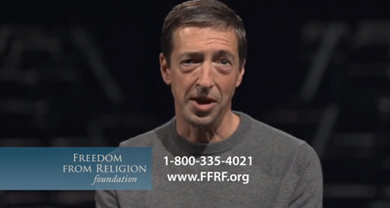Mobile Menu

Lauryn Seering
Lorraine Hansberry Scholarships Awardee: Raina Lee
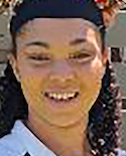 The Freedom From Religion Foundation is delighted to announce, in association with the Women’s Leadership Project, the establishment of the Lorraine Hansberry Humanist Scholarship Award.
The Freedom From Religion Foundation is delighted to announce, in association with the Women’s Leadership Project, the establishment of the Lorraine Hansberry Humanist Scholarship Award.
The state/church watchdog has funded for the first time this year $1,000 scholarships for five recently graduated high school seniors from Los Angeles. The honorees were chosen by the Women’s Leadership Project, which with Young Male Scholars, conducts school and community-based peer education programming, outreach and professional development, offering invaluable life and job training skills.
Students meet weekly with program coordinators and interns and are trained in sexual harassment and sexual violence prevention, LGBTQ+ youth leadership outreach and homeless education. Students elect their own group officers and assume responsibility for campus outreach and other communications, writing blogs, articles, poems and crafting video. They initiated two youth-facilitated forums on Black homeless women, anti-racism and mental health, as well as LGBTQ+ Youth of Color and mental health sexual harassment and campus climate.
Raina Lee will be attending college this fall as a math major, also taking computer science courses, with a goal to “expose other young black girls to the world of coding and teach them the leadership skills Women’s Leadership Project has taught me,” including sharing the confidence to become their own boss.
Lorraine Hansberry Scholarships Awardee: Ashley Harris
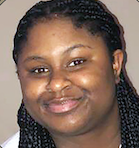 The Freedom From Religion Foundation is delighted to announce, in association with the Women’s Leadership Project, the establishment of the Lorraine Hansberry Humanist Scholarship Award.
The Freedom From Religion Foundation is delighted to announce, in association with the Women’s Leadership Project, the establishment of the Lorraine Hansberry Humanist Scholarship Award.
The state/church watchdog has funded for the first time this year $1,000 scholarships for five recently graduated high school seniors from Los Angeles. The honorees were chosen by the Women’s Leadership Project, which with Young Male Scholars, conducts school and community-based peer education programming, outreach and professional development, offering invaluable life and job training skills.
Students meet weekly with program coordinators and interns and are trained in sexual harassment and sexual violence prevention, LGBTQ+ youth leadership outreach and homeless education. Students elect their own group officers and assume responsibility for campus outreach and other communications, writing blogs, articles, poems and crafting video. They initiated two youth-facilitated forums on Black homeless women, anti-racism and mental health, as well as LGBTQ+ Youth of Color and mental health sexual harassment and campus climate.
Ashley Harris, a graduate of Drew Medical Magnet High School, will be attending El Camino College and plans to transfer to San Diego State, with a goal to study law. “My family is filled with either nurses or musicians and I wanted to be different, to create a change in the law system and free wrongly committed individuals,” she says.
Thomas W. Jendrock Student Activist Awardee: Matthias Chan
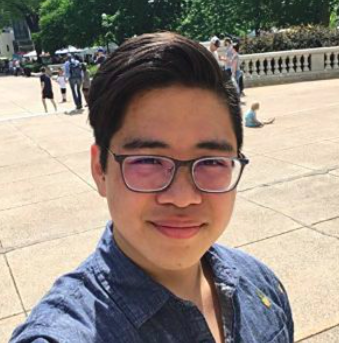 Matthias Chan wrote a blog, narrating his journey to agnostic atheism, after doing classwork at the Center for Religion and Global Citizenry at the University of Wisconsin-Madison. It is also posted at the center’s website.
Matthias Chan wrote a blog, narrating his journey to agnostic atheism, after doing classwork at the Center for Religion and Global Citizenry at the University of Wisconsin-Madison. It is also posted at the center’s website.
“I really liked Matthias’ essay: His thoughtfulness, respect for the differing beliefs of others, and his eloquence of writing,” said scholarship benefactor Thomas W. Jendrock, who has been contributing scholarship funds since 2013, for “a student who exhibits an atheist perspective which is positive, confident, introspective, constructive, optimistic and caring — and considerate and respectful toward individuals who do not share our beliefs.” Matthias received a $1,000 scholarship.
By Matthias Chan
Thomas W. Jendrock Student Activist Award: Wisconsin student ‘empowered by atheism
Be the God you want to see in the world.
Now that I’ve gotten your attention, let me explain.
In my spiritual journey throughout the school year, after exploring many faiths and religions through the Center for Religion and Global Citizenry and discussions with other interfaith fellows, I’ve finally ended up at agnostic atheism. Believing that there is no God, however, wasn’t as liberating as one may think. Instead, it put a huge burden on me. Because God wasn’t telling me what was right and wrong, and there wasn’t some divine plan that worked for the good of everyone, it placed the burden on me to fill in those gaps.
For atheists and agnostics, for whom a divine judge is absent, humanity has become the sole arbiter of right and wrong. We’re not just the judge, but we are the jury and executioner, as well. To borrow some terminology from Nietzsche, God is dead and we have replaced him. Because God is no longer sitting on his throne in heaven, there’s nobody looking out for us up there and making sure that everything is going to be all right. That is now our responsibility.
Theologians like Irenaeus, Augustine, Al-Ghazali and Ibn Sina have struggled with the question of how suffering exists under the rule of an all-powerful God. But now, in the void vacated by the Almighty, it’s our job to alleviate the wounds of humanity.
This task isn’t just for those who doubt the supernatural. Embodying the compassion our world needs is a fundamental tenet of all the world’s religions. Abraham shows kindness and hospitality to complete strangers and guests. St. Paul urges Christians in Ephesus to embody Jesus’s self-sacrifice. Krishna teaches Arjuna to treat all beings with kindness and compassion, and Buddha commanded his followers to show compassion to all beings. Guru Nanak told early Sikhs that they must show kindness to all. Zoroaster said, “Doing good to others is not a duty. It is a joy, for it increases your own health and happiness.” All of these holy figures knew the importance of kindness and compassion, and they all practiced it in their daily lives.
I dream of a future where atheists, theists and everyone in between unite to create a better world, because it’s time for us to take up our role and be what we want and need God to be in a world filled with pain and suffering. It’s time for us to become the God we want to see in this world. It’s our duty to become selfless, protective, generous, loving and everything else that we know humanity desperately needs in order to repair the world and work toward the greater good for all. In the words of Jim Greenbaum, founder of the Greenbaum Foundation, “Being a bystander to suffering is not an option.”
Be the God you want to see in the world.
Matthias writes: “I’m studying computer science and religious studies at UW-Madison. I was raised in a nondenominational Christian home in Wisconsin, and although I no longer identify with any organized religion, I have a passion for studying world religions, their history, and their philosophical and theological thought.”
FFRF’s $1,000 Student Activist Awardee: Alex Torrez
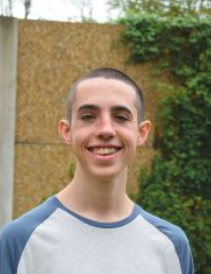 Alex Torrez received FFRF’s $1,000 Student Activist Award, endowed by a generous couple in the Northwest who prefer anonymity.
Alex Torrez received FFRF’s $1,000 Student Activist Award, endowed by a generous couple in the Northwest who prefer anonymity.
By Alex Torrez
I’m a home-schooled high school junior and I’ve been competing in national circuit Lincoln-Douglas Debate competition for three years. I’m also an atheist.
Debate has caused me to dramatically change the way I look at the world and converse with others. It’s the single most important thing I’ve done since I started high school. We debate a resolution that changes every two months, but usually revolves around a proposed policy, such as “The United States should implement a federal jobs guarantee,” or “States ought to abolish their nuclear arsenals.” When Covid-19 hit, debate went from being an in-person activity hosted by high schools and colleges around the country to an online platform. The first major online tournament was hosted by Strake Jesuit High School in Texas. It drew nearly 200 participants, making it one of the most highly attended tournaments of the year.
After signing up, I was sent to the rules page. The rules for this tournament — the first of its kind — specifically allowed debaters to use profanity, unless that profanity was “blasphemy” or “directed toward others and/or God or the saints and angels.” This tournament put three expressly Christian rules ahead of the rule prohibiting child exploitation or threats of physical harm!
I was shocked. But then I realized that this was the perfect opportunity to use my experience as both a debater and an atheist to not only raise awareness about atheist voices in debate, but also to call attention to the very real possibility that we could be excluded from all major debate tournaments going forward if they modeled themselves after this one. I couldn’t let that happen.
Like any good debater, I started by doing the research. I found peer-reviewed academic literature by psychologist Will Gervais showing that atheists are viewed as negatively as rapists. I read psychology journals proving that people are biased in favor of moral arguments when made by theists and against those same arguments when made by atheists. I also found evidence of real-world violence against atheists. But I still wasn’t sure how to turn all of that into a coherent debate case.
Then it hit me: civil disobedience. I was going to break the rules — and encourage others to break them too. I was going to accept whatever punishment they handed down for breaking them, and I was going to change this event forever. Rule 2 specified that profanity was OK, as long as it wasn’t directed towards others.
Here’s how I opened my speech: “Fuck God and all his stupid fucking angels!” (I didn’t say I was subtle.)
Then, I ran my case. I explained the research, and I wove everything together into an argument for why the judge had to join me in civil disobedience to protest. To be honest, I don’t think I’ve ever debated as well as I did in that round. And, after I finished my last speech and sat down, I looked at the server and realized that more than 50 people had joined the online room as observers! My room. Throughout the round, word had spread and people gathered to watch.
I lost that round. Ten minutes later, I was kicked out of the entire tournament for violating the rules.
For a second, I was hurt. I was the better debater. I wanted to win. But then I saw the bigger picture: 50 people learned something that day. A judge asked me for a copy of my case. People noticed.
Since that day, there have been dozens of online debate tournaments, including another one hosted by Strake Jesuit. And you know what? None of them use those bigoted rules. Now, I don’t know how much of that is due to my civil disobedience (if any), but I’m proud that I was the first person to raise the issue.
I’m a debater, and I’m an atheist.
Alex Torrez, 18, is a homeschooled 11th-grade student from Arbutus, Md. When not competing in high school debates, Alex enjoys designing board and card games, as well as playing a variety of other tabletop games such as Magic: The Gathering.
The endorsement ad by Ron Reagan promoting the Freedom From Religion Foundation will reappear several times on MSNBC in April, starting tonight.
The irreverent ad, with Reagan’s signature line of being “an unabashed atheist, not afraid of burning in hell,” will air tonight, Wednesday and Thursday and three days next week on MSNBC’s “Rachel Maddow Show” (9 p.m. Eastern).
It’ll resume playing on “Full Frontal with Samantha Bee” on TBS for three weeks starting Wednesday, April 21. That show airs at 9:30 p.m. Eastern Wednesdays and repeats an hour later.
In the 30-second spot, Reagan, says:
Hi, I’m Ron Reagan, an unabashed atheist, and I’m alarmed by the intrusion of religion into our secular government. That’s why I'm asking you to support the Freedom From Religion Foundation, the nation’s largest and most effective association of atheists and agnostics, working to keep state and church separate, just like our Founding Fathers intended. Please support the Freedom From Religion Foundation. Ron Reagan, lifelong atheist, not afraid of burning in hell.
FFRF is indebted to Reagan for his generous support.
“The ad creates some nice cognitive dissonance,” says Dan Barker, FFRF co-president. “Here’s the son of conservative President Ronald and Nancy Reagan openly identifying as a nonbeliever in support of FFRF’s work.”
To make possible continued appearances by the ad, which has brought many new members and increased visibility to FFRF, you can earmark a donation to FFRF’s advertising fund.
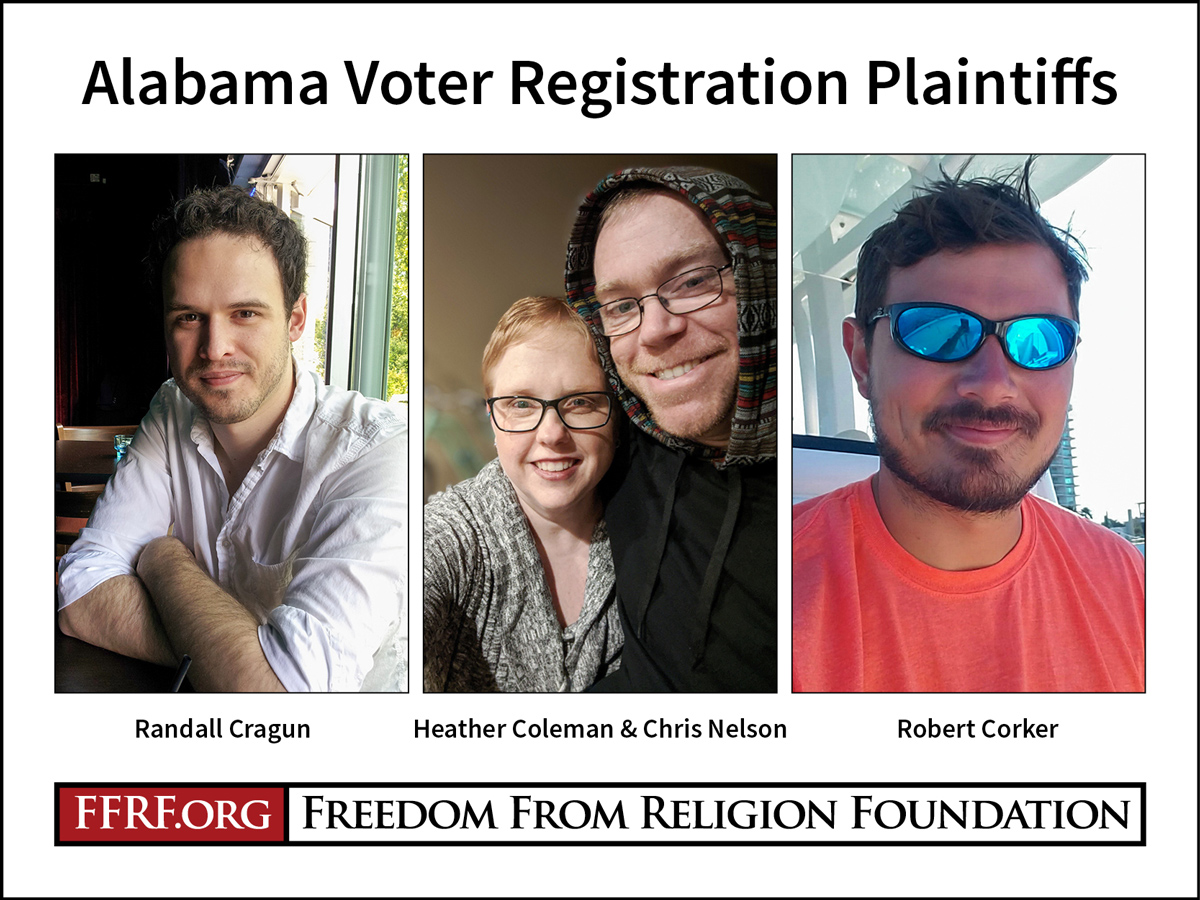
The Freedom From Religion Foundation has attained a huge constitutional victory for secular voters in Alabama.
FFRF sued the Alabama secretary of state last October on behalf of four Alabama citizens who encountered and objected to a religious test to register to vote.
Now that the state of Alabama has amended all its voter registration forms to allow citizens to opt out of the religious oath, both online and in printed forms, the national state/church watchdog is voluntarily dismissing its federal lawsuit challenging the uniquely Alabamian mandatory religious voter registration oath.
“The Alabama secretary of state excludes Alabama citizens from being able to vote if they are unable to swear a religious oath,” stated the suit. “The secretary of state’s official policy is to hinder the registration of voters who are unable to swear ‘so help me God.’ This policy violates the rights of the plaintiffs and others under the First and 14th Amendments to the United States Constitution.”
As part of a settlement, the secretary of state has amended all of the voter registration forms to allow voters to avoid swearing a religious oath. The new “mail in” form provides a check box that says, “OPTIONAL: Because of a sincerely held belief, I decline to include the final four words of the oath above.”
Shortly after the suit was filed, the secretary of state began implementing other changes. In November, the office adopted a new administrative rule that allows voters to strike out “so help me God” and provided guidance to county registrars (who add voters to the rolls) saying that voters could cross out the language.
The lead plaintiff, Randall Cragun, an atheist, had sought to register to vote in Alabama since November 2019. However, voters submitting this registration form in Alabama had to sign the voter declaration, beginning “I solemnly swear or affirm” and concluding with “so help me God.” The director of elections informed Cragun: “There is no legal mechanism to register to vote in AL without signing the oath as it is stated.”
The state of Alabama has dramatically changed its posture, thanks to FFRF’s lawsuit.
FFRF’s plaintiffs Chris Nelson and Heather Coleman (who are married) were able to register using the new form in March. Both of their registrations were accepted by the Shelby County registrars. “We are glad that the state has — at least, begrudgingly — made some concessions to support state-church separation, and that freethinkers in Alabama will continue to push for these reforms,” they say.
The other plaintiffs have expressed their appreciation for not being forced to pose as religious in order to exercise such a basic right.
“Because of this suit, I will finally be able to register to vote in Alabama,” says Cragun. “It is disappointing that the state prevented me from voting in the 2020 elections, but I am looking forward to participating in the future, and I now have a better appreciation of the value my voice and other individual voices contribute to shaping the state.”
Adds co-plaintiff Robert Corker, “I am proud to have been a part of this effort to secularize voting in the state of Alabama. I relish more opportunities to foster inclusiveness for nonbelievers in this state.”
FFRF is honored to play its part of securing voting access for all Alabamians.
“The secretary of state was consciously discriminating against nonbelieving voters,” says FFRF Senior Litigation Counsel Patrick Elliott. “We obtained our goal of ensuring equal voting rights.”
The national state/church watchdog is surprised that it took its lawsuit to bring about such needed change.
“Millions of Alabamians were being asked to swear a religious oath as a fait accompli,” says FFRF Co-President Annie Laurie Gaylor. “We warmly thank the plaintiffs, without whom we could not have put an end to this unconstitutional mindgame.”
The lawsuit had been filed in the U.S. District Court for the Northern District of Alabama, Southern Division. Steven P. Gregory of the Birmingham-based Gregory Law Firm was serving as co-counsel. FFRF Senior Litigation Counsel Patrick Elliott and FFRF Associate Counsel Liz Cavell were also attorneys in the case. The defendant was Alabama Secretary of State John H. Merrill.
FFRF litigation to correct state/church entanglements is made possible thanks to kind donations designated to FFRF’s legal fund.
The Freedom From Religion Foundation is a national nonprofit organization with more than 35,000 members across the country, including hundreds of members in Alabama. Its purpose is to protect the constitutional principle of separation between state and church.
FFRF NY Times ad examines religious roots of insurrection
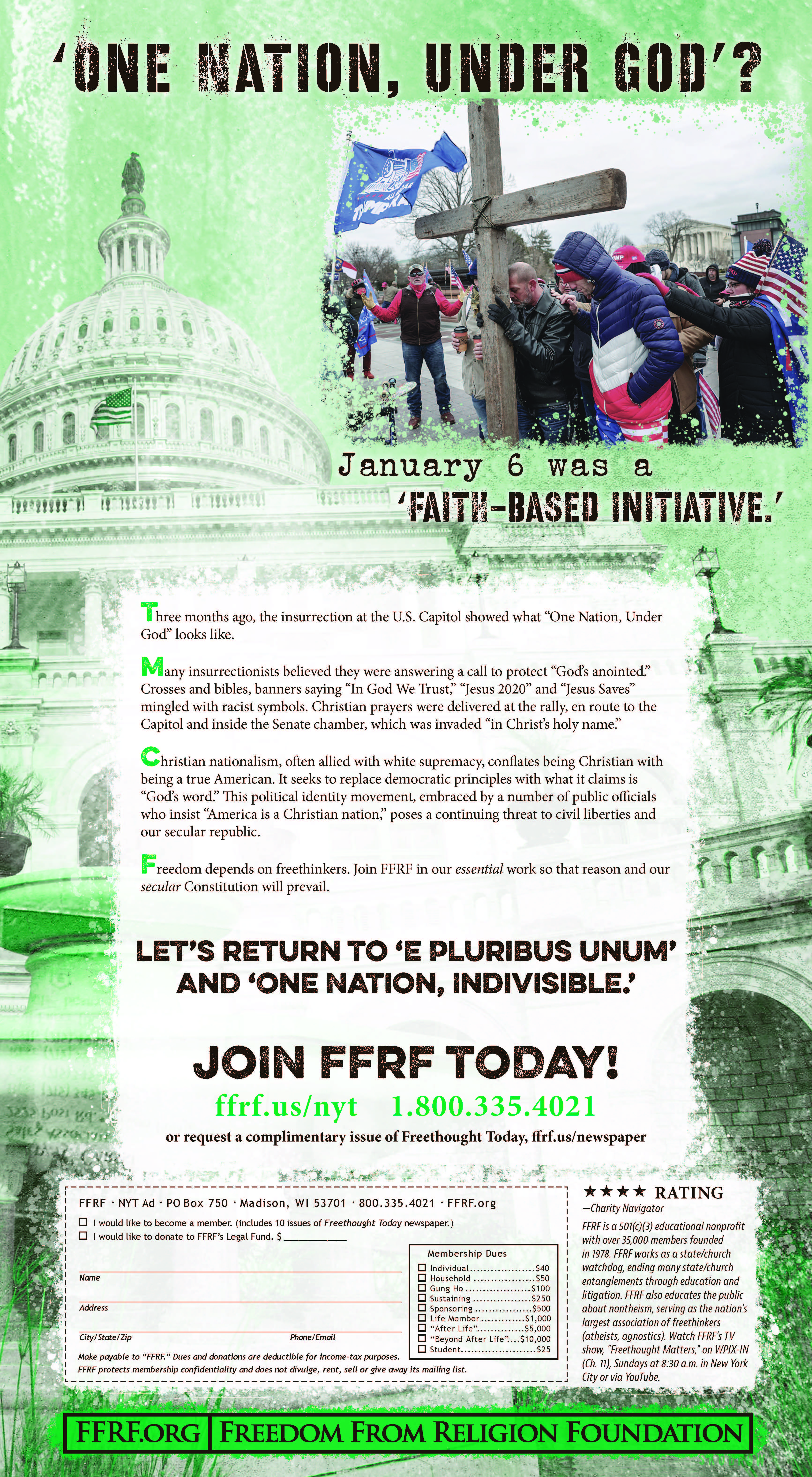 The Freedom From Religion Foundation is running a full-page ad in the national news section of today’s New York Times calling the storming of the Capitol a “faith-based initiative.”
The Freedom From Religion Foundation is running a full-page ad in the national news section of today’s New York Times calling the storming of the Capitol a “faith-based initiative.”
The ad features a large photograph of Jan. 6 insurgents in prayer before a wooden cross at the U.S. Capitol. FFRF warns that the assault is what “One Nation, Under God” looks like and urges a return to “E Pluribus Unum” and “One Nation, Indivisible.”
The ad documents the Christian nationalist nature of the mob attack. “This political identity movement, embraced by a number of public officials who insist ‘America is a Christian nation,’ poses a continuing threat to civil liberties and our secular republic,” warns FFRF.
The ad concludes, “Freedom depends on freethinkers. Join FFRF in our essential work so that reason and our secular Constitution will prevail.”
“I truly believe that ‘E Pluribus Unum’ is the answer to Jan. 6,” says Annie Laurie Gaylor, FFRF co-president. “‘From many, [come] one’ encapsulates the ideal that diverse citizens and states can embrace our differences while coming together as ‘We the People’: one people and one nation under a secular Constitution.”
The ad language plays on the Pledge of Allegiance, which originally ended, “one nation, indivisible, with liberty and justice for all,” until a McCarthy-era Congress tampered with it by inserting the words “under God.”
A similar full-page ad appears today in the Wisconsin State Journal.
The educational ad was made possible thanks to the generosity of FFRF members donating to FFRF’s Advertising Fund.
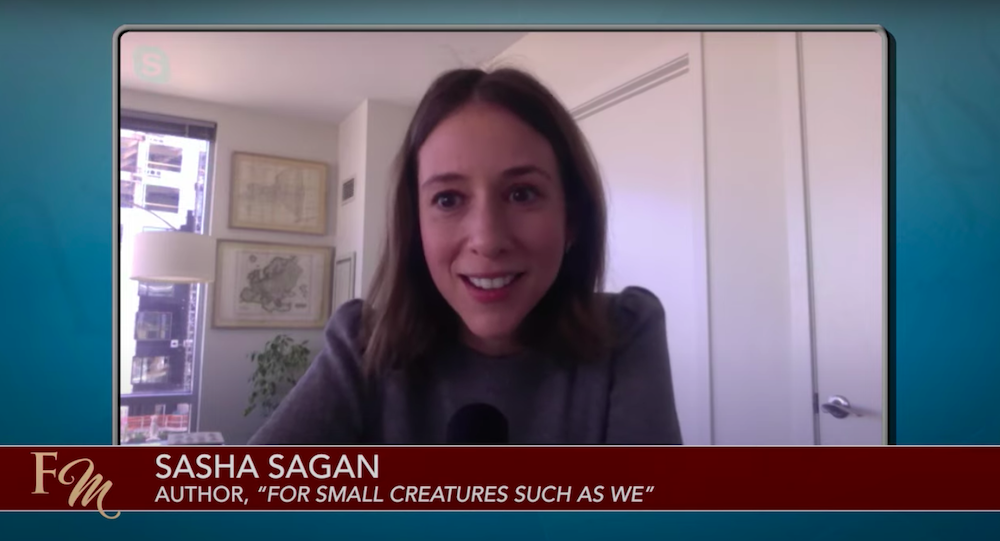
A secular maven who is the scion of a famous scientific family is interviewed on the Freedom From Religion Foundation’s “Freethought Matters” TV show this Sunday.
Sasha Sagan is a television producer, filmmaker, writer and speaker. Her essays and interviews on death, history and ritual through a secular lens have appeared in publications such as The Cut, O, The Oprah Magazine and Literary Hub. Sasha regularly speaks on ways science can inform celebrations, inspired in part by the work of her parents, Carl Sagan and Ann Druyan. Her first book, For Small Creatures Such as We: Rituals for Finding Meaning in Our Unlikely World, is part memoir, part guidebook, part social history.
“I think that those of us who are not religious have to sort of find a way to make the world more fair, to make it so that those of us who grew up privileged as I did, if we don’t think there’s any rhyme or reason, there’s nobody planning all this, then it’s on people who have been very lucky to try to make the world more fair and more just,” she tells “Freethought Matters” guest host Andrew Seidel. “And it solves another problem of secular life, which is just a way to create a community where you’re with people who share some of your values and where you can be together for the hills and valleys of this sometimes very difficult world that we live in.”
If you don’t live in the quarter-plus of the nation where the show broadcasts on Sunday, you can already catch the interview on FFRF’s YouTube channel. You can also receive notifications when we post new episodes of Freethought Matters by subscribing to FFRF's YouTube channel.
This is the fall/spring season’s 32nd episode of “Freethought Matters,” airing in over a dozen cities on Sunday, April 4.
Coming shows include interviews with author and secular scholar Susan Jacoby, former teen state/church plaintiff/victor Jessica Ahlquis, as well as Debbie and Dan Weisman, whose Supreme Court case halted graduation prayers.
“Freethought Matters” airs in:
- Chicago, WPWR-CW (Ch. 50), Sundays at 9 a.m.
- Denver, KWGN-CW (Ch. 2), Sundays at 7 a.m.
- Houston, KUBE-IND (Ch. 57), Sundays at 9 a.m.
- Los Angeles, KCOP-MY (Ch. 13), Sundays at 8:30 a.m.
- Madison, Wis., WISC-TV (Ch. 3), Sundays at 11 p.m.
- Minneapolis, KSTC-IND (Ch. 45), Sundays at 9:30 a.m.
- New York City, WPIX-IND (Ch. 11), Sundays at 8:30 a.m.
- Phoenix, KASW-CW (Ch. 61, or 6 or 1006 for HD), Sundays at 8:30 a.m.
- Portland, Ore., KRCW-CW (Ch. 32), Sundays at 9 a.m. Comcast channel 703 for High Def, or Channel 3.
- Sacramento, KQCA-MY (Ch. 58), Sundays at 8:30 a.m.
- San Francisco, KICU-IND (Ch. 36), Sundays at 10 a.m.
- Seattle, KONG-IND (Ch. 16 or Ch. 106 on Comcast). Sundays at 8 a.m.
- Washington, D.C., WDCW-CW (Ch. 50 or Ch. 23 or Ch. 3), Sundays at 8 a.m.
Previous guests from the fall season include: pundit Eleanor Clift, whose interview you can watch here, actor and FFRF After-Life Member John de Lancie of “Star Trek” “Q” fame, Pulitzer Prize-winning reporter Linda Greenhouse, the country’s leading analyst of the U.S. Supreme Court, and legislative stalwart and feminist and civil rights pioneer U.S. Rep. Eleanor Holmes Norton. One of the most eminent public intellectuals in the world, Professor Steven Pinker, was interviewed a few episodes ago talking about his new course on rationality. Legendary TV host, actor and singer John Davidson was the guest in early December. Recently, the show featured Ann Druyan, the co-creator of “Cosmos,” possibly the most acclaimed TV series of all time (and the mother of this week's guest). A.C. Grayling, a prominent British philosopher and the author of about 30 books, grappled on the show with philosophy and the pandemic, and discussed how he himself dealt as a nonbeliever with a personal tragedy. Two weeks ago, the interview was with Rep. Jerry McNerney, a co-founder of the Congressional Freethought Caucus.
Watch previous seasons here, including interviews with Ron Reagan, Julia Sweeney and Ed Asner, as well as U.S. Reps. Jared Huffman and Jamie Raskin, co-chairs of the Congressional Freethought Caucus.
Please tune in to “Freethought Matters” . . . because freethought matters.
P.S. Please tune in or record according to the times given above regardless of what is listed in your TV guide (it may be listed simply as “paid programming” or even be misidentified). To set up an automatic weekly recording, try taping manually by time or channel. And spread the word to freethinking friends, family or colleagues about a TV show, finally, that is dedicated to providing programming for freethinkers!
Freethought Radio -- April 1, 2021
Nix unconstitutional bill, FFRF urges Maine Statehouse
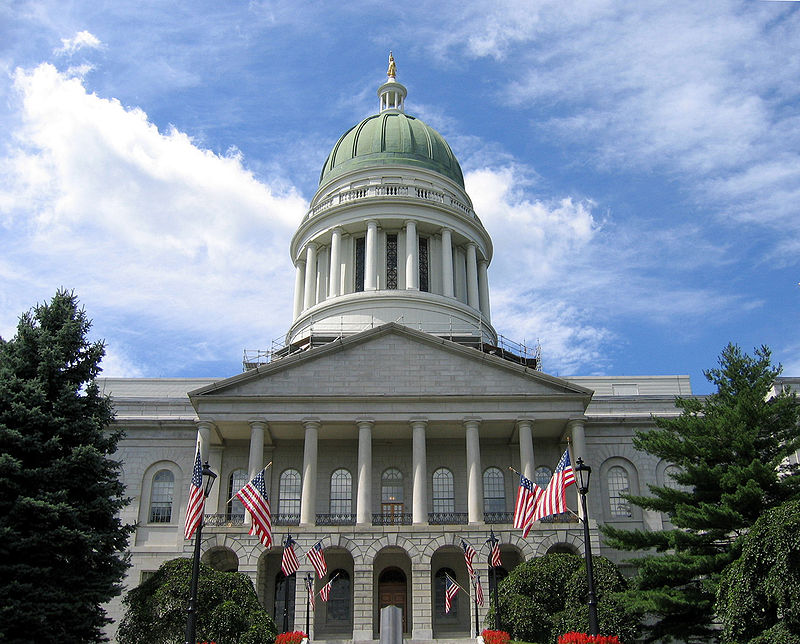
The Freedom From Religion Foundation is submitting testimony to the Maine Legislature in opposition to a bill that proposes to unconstitutionally favor long-established churches.
LD 1063 exempts “qualifying” religious organizations from auto insurance requirements. To qualify, a religious organization must have “established tenets and faith-based teachings and ha[ve] been in existence continuously since Dec. 31, 1950.” There also must be “no factors causing the secretary of state to believe that the religious organization and its members do not have the financial ability to pay any future judgements against them.”
These requirements are problematic on at least three levels, FFRF Staff Attorney Ryan Jayne writes to Sen. Heather Sanborn and Rep. Denise Tepler, co-chairs of the Committee On Health Coverage, Insurance and Financial Services, which is holding a hearing on the bill on Thursday, April 1.
First and foremost, the bill discriminates against secular nonprofits by only allowing applicants that are “religious organizations,” and those with “faith-based teachings,” to qualify. Second, the bill discriminates against newer religious organizations, which disproportionately includes minority religions. Third, the broad and vague power given to the secretary of state to deny an organization’s qualification status based on any “factor” causing the secretary to “believe” that the organization could not pay judgments against them is an invitation for unequal treatment and further discrimination.
For all of these reasons, FFRF underscores, LD 1063 places the state’s stamp of approval on certain religious organizations over others — and over all secular nonprofits. This selective favored treatment violates the Establishment Clause of the First Amendment to the U.S. Constitution and Article I, § 3 of the Maine Constitution, which states that “no subordination nor preference of any one sect or denomination to another shall ever be established by law.”
And, importantly, this bill leaves a large percentage of Mainers behind because they are nonreligious. Nonreligious Americans are the fastest growing segment of the U.S. population by religious identification — 35 percent of Americans are non-Christians, and this includes the more than one in four Americans who now identify as religiously unaffiliated. Besides being unconstitutional, it is unfair and irrational to favor certain religious residents.
For all of the above reasons, FFRF strongly urges the Maine Legislature to vote in opposition to LD 1063.
The Freedom From Religion Foundation is a national nonprofit organization with more than 35,000 members and several chapters across the country, including members in Maine and a state chapter. It protects the constitutional separation between state and church, and educates the public about nontheism.
Photo: Via Wikipedia CC BY-SA 3.0.
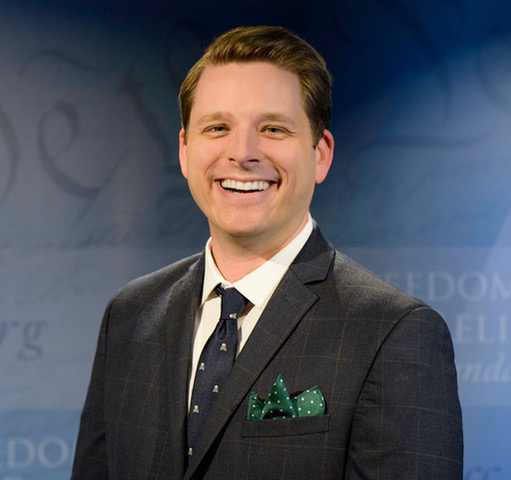 Protecting our democracy is a secular issue. FFRF explained this a few weeks ago and it’s something we want our members and the wider country to understand. We paid special attention to the groups that oppose full enfranchisement and voting rights for all Americans. Earlier this week, during a hearing on H.R. 1, the For the People Act, one of the opponents of democratic reform (that’s “democratic” with a small “d”) justified racist voter suppression by citing her bible and “In God We Trust.” FFRF’s Director of Strategic Response Andrew L. Seidel has penned an op-ed for Religion Dispatches skewering Sen. Cindy Hyde-Smith. Seidel begins:
Protecting our democracy is a secular issue. FFRF explained this a few weeks ago and it’s something we want our members and the wider country to understand. We paid special attention to the groups that oppose full enfranchisement and voting rights for all Americans. Earlier this week, during a hearing on H.R. 1, the For the People Act, one of the opponents of democratic reform (that’s “democratic” with a small “d”) justified racist voter suppression by citing her bible and “In God We Trust.” FFRF’s Director of Strategic Response Andrew L. Seidel has penned an op-ed for Religion Dispatches skewering Sen. Cindy Hyde-Smith. Seidel begins:
Christian Nationalism is like a skeleton key that can help us understand the motivations for some of the worst public policy proposals over the last few years. From anti-masking and challenging public health orders, to gun fetishists and police brutality, to anti-Semitism. And from seemingly ceremonial declarations like National Bible Week to attacking the Capitol and our democracy, Christian nationalism explains so much.
Even so, this understanding usually comes from data and scholarly study. It’s rare to hear a politician openly use Christian Nationalism to, for instance, defend voter suppression explicitly. Few have the courage to admit this tie so clearly. But yesterday, a bold senator from Mississippi, Sen. Cindy Hyde-Smith stood up and did just that.
At a committee hearing on H.R. 1, the For The People Act, the most important voting rights bill since the Voting Rights Act, Sen. Chuck Schumer mentioned a new Georgia voter suppression bill that targets minority voters, especially Black and Jewish voters. The bill would limit voting on Sunday, including early voting, and essentially shut down “Souls to the Polls” initiatives historically used by Black churches to get out the vote.
Hyde-Smith, the latest in a long and shameful line of senators from Mississippi — including mediocrities such as Theodore Bilbo and James Vardaman — rose to defend the measure that seeks to make it harder for people to vote if they don’t look like her. And she turned to a Christian Nationalist motto and the Bible to justify her defense of disenfranchisement.
Seidel concludes the piece by pointing out that Hyde-Smith’s rhetoric is precisely why we need to get back to the de facto original US motto. Please read the whole column on Religion Dispatches and then share it on your social media.
